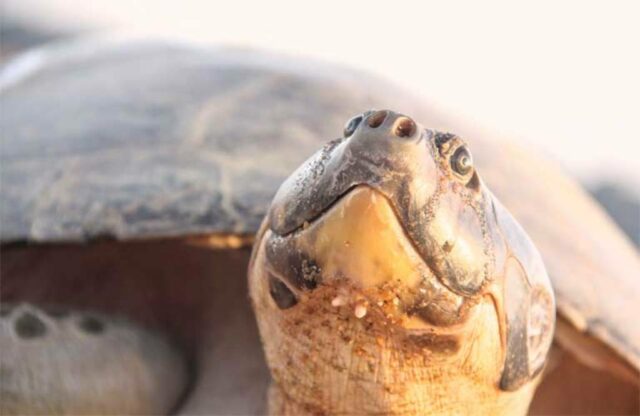According to a new analysis, poaching of sea turtles has decreased in recent times. Since the year 2000, the decline is considerable and most of the current catches occur in areas where their populations are healthy.
This study is the first to globally quantify the number of specimens sold on the black market. According to the analysis, between 1990 and 2020 more than one million specimens were illegally caught. But it was also observed that, between 2010 and 2020, illegal catches decreased by 30 percent compared to the previous decade.
“The positive aspect is that, despite the apparent large amount of illegal capture, it is not having a negative impact on populations on a global scale. That’s very good news,” says Jesse Senko, a marine biologist at Arizona State University in Tempe and co-author of the study. The research was published September 7 in Global Change Biology.
Trinkets made from turtle shells
Adult sea turtles and their eggs have been used by humans for millennia as a food source and for cultural practices. However, in the last 200 years, many of their populations have declined dramatically as hunting has increased to meet the growing demand for products derived from them. In Europe, North America, and Asia, their shells were used to make combs, jewelry, and furniture inlays. They were also hunted for their meat and for use in traditional medicine.
The increase in the hunting of sea turtles meant that, in 2014, some 42,000 were caught legally a year. It is unknown how many were sold on the black market. Today, six of the seven species in the world are threatened with extinction due to a lethal combination of different factors: habitat destruction, poaching and accidental entanglement in fishing gear.
China and Japan
To determine how many are being caught illegally, Senko and his team surveyed specialists and analyzed 150 documents, including reports from non-governmental organizations, articles in specialized magazines, and newspaper articles. No one knows exactly where all the turtles that are trafficked come from, but 90 percent of these animals end up in China or Japan.
When they combined all this data, the researchers made a conservative estimate: Between 1990 and 2020, around 1.1 million sea turtles were taken illegally. Almost 90 percent ended up in China and Japan. The vast majority came from low- and middle-income countries (see figure ‘Long-distance transport of turtles’). Of the species that could be identified, the most exploited were the green (Chelonia mydas), hunted for their meat and endangered, and the hawksbill (Eretmochelys imbricata), prized for their beautiful shell and critically endangered.
However, the data also showed that the number of illegally caught turtles decreased. Between the beginning of 2000 and the end of 2009, some 61,000 were captured each year, whereas in the last decade there have been about 44,000 per year (see the figure «Caught Turtles»). And, while there were exceptions, most of those caught lived in relatively robust, large, and genetically diverse populations.

Regional populations are under threat
While these animals seem to be doing pretty well globally, Emily Miller, an ecologist at the Monterey Bay Aquarium Research Institute in California, reminds us not to ignore that regional populations are under threat. The study determines where (and for whom) these animals are taken, which Miller says would help conservationists target local communities to protect them.
Overall, the numbers indicate that conservation efforts are paying off, Senko notes. “Contrary to popular belief, most of the world’s sea turtle populations are doing pretty well. The number of catches is staggering, but the ocean is big and there are a lot of them out there.”

